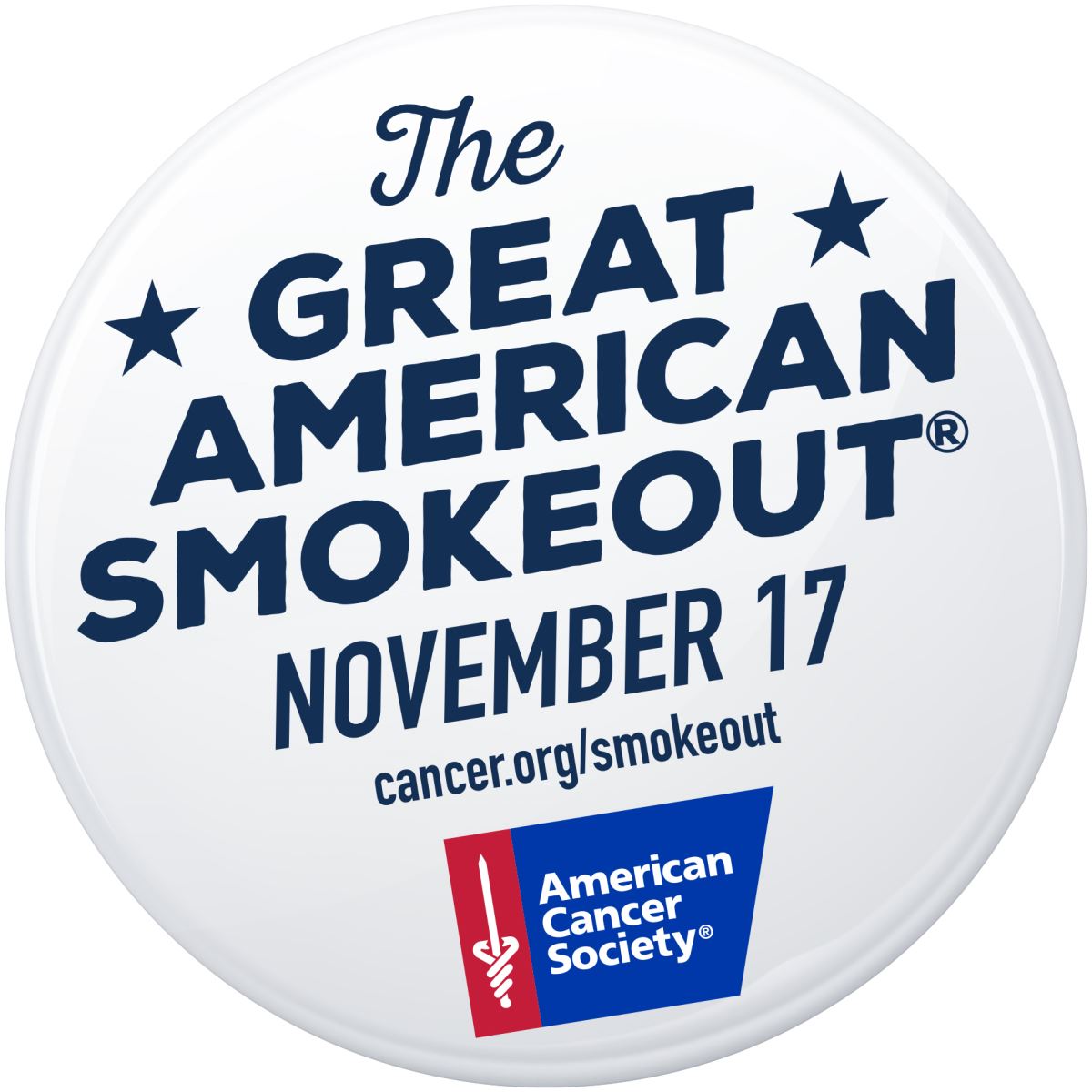Smoking cigarettes is the leading cause of preventable death in the United States, according to the Centers for Disease Control and Prevention (CDC).
It is responsible for more than 480,000 deaths per year in the United States, including nearly 42,000 deaths resulting from exposure to secondhand smoke. This represents about one in five deaths annually, or 1,300 deaths every day. Living a longer and healthier life is one huge benefit of quitting, but there are many other benefits.
Did you know that smoking cigarettes can make allergies and asthma worse? Smoking also decreases the skin’s elasticity, leading to sagging and wrinkles — especially around the lips and eyes.
Are you planning to quit tobacco? Research shows that if you pick a quit day that’s within the next 30 days and stick to it, you’ll be more likely to succeed in quitting. Why not pick the American Cancer Society Great American Smokeout® on Nov. 17? Here are some ways to prepare for your quit day:
• Pick the date and mark it on your calendar.
• Tell friends and family about your quit day.
• Visit www.cancer.org/smokeout and download the Quit Clock desktop helper. The Quit Clock lets you plug your quit day into your computer, and then counts down to the selected day. Each morning, a new tip comes up to help you prepare to stop using tobacco.
• Download the Quit For Life® mobile app, available on both iOS and Android platforms.
• Stock up on oral substitutes – sugarless gum, carrot sticks or hard candy.
• Think back to your other attempts to quit. Try to figure out what worked and what didn’t work for you. There is no one right way to quit. Quitting tobacco is a lot like losing weight — it takes a strong commitment over a long period of time. Tobacco users may wish there was a magic bullet — a pill or method that would make quitting painless and easy, but, unfortunately, there’s nothing like that on the market. Nicotine substitutes can help reduce withdrawal symptoms, but they are most effective when used as part of a plan that addresses both the physical and psychological components of quitting tobacco.
Quitting isn’t easy, but you can do it. In fact, do it with a friend. When trying to quit smoking, support can make all the difference.
To learn more, visit www.cancer.org/smokeout or call the American Cancer Society at 1.800.227.2345.
To register for a free Freshstart tobacco cessation class at Tanner, visit our calendar of events or call 770.214.CARE (2273).